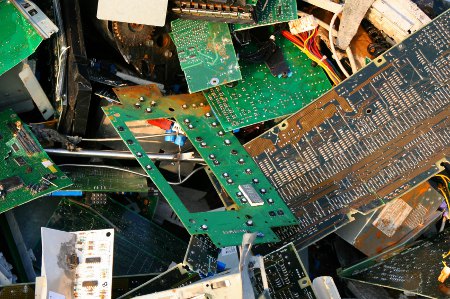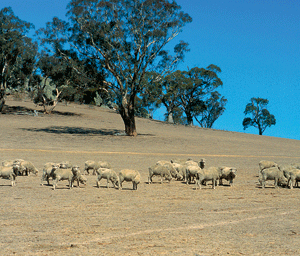
|
Published: 7 November 2011
More support to keep toxic waste out of poor countries
Australia is among a small group of developed countries that recently announced their decision to support, rather than oppose, the strengthening of an international treaty on the export of hazardous wastes to ensure greater protection for developing countries.

|
|
There is an international push for rich and poor countries alike to take responsibility for hazardous waste, including the growing volumes of electronic waste. Credit:
Lya Cattel/istockphoto
|
The Basel Convention on the Control of Transboundary Movements of Hazardous Wastes and their Disposal, which has been in force for almost 20 years, aims to control the movement of hazardous waste – particularly the rapidly growing volume of electronic waste – across national boundaries.
At the 10th Conference of the Parties of the Basel Convention recently held in Cartagena, Colombia, all 178 participating countries agreed to allow the passage of the Basel Ban Amendment.
The Ban Amendment aims to prohibit all exports of hazardous wastes, including electronic wastes and old obsolete ships from developed to developing countries. It was originally proposed in 1995 but stalled in the meantime due to uncertainty on the part of some countries as to how to interpret the Convention.
Countries that opposed the Basel Ban Amendment – including Australia, New Zealand, Canada, Japan and India – announced their decision at the recent conference to allow its entry into force at the earliest possible date.
The Ban Amendment requires 68 of the 90 countries that were Parties to the Convention in 1995 to ratify it. Already 51 have ratified and the remaining 17 are expected to come on board in 2–3 years.
The latest deal was brokered by Indonesia and Switzerland and strongly promoted by China and the European Union, as well as the non-government organisations Greenpeace, the Center for International Environmental Law, the Platform on Shipbreaking and the Basel Action Network.
‘The Ban Amendment ensures that developing countries are not convenient dumping grounds for toxic factory waste, obsolete ships containing asbestos, or old computers coming from affluent countries,’ said Jim Puckett, Executive Director of the Basel Action Network.
‘It enforces the Basel Convention obligation that all countries manage their own hazardous waste.’
According to the Basel Action Network, the recent decision means that more countries will feel diplomatic pressure to ratify, and countries such as the United States, which have never ratified the Convention, will have to accept the ban as an integral part of the Convention once it enters force.
Source: Basel Action Network



